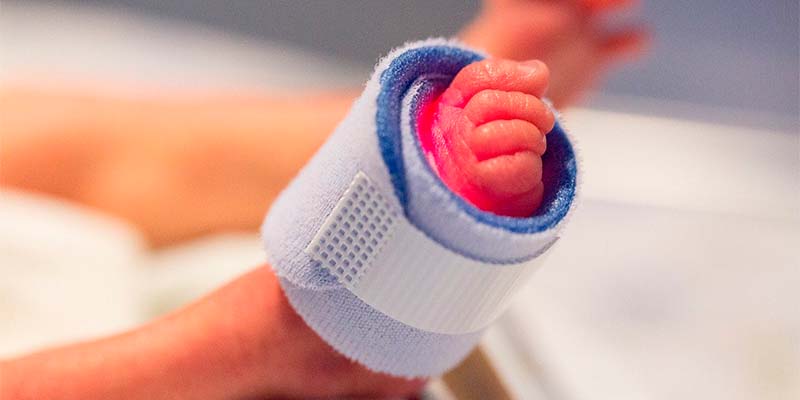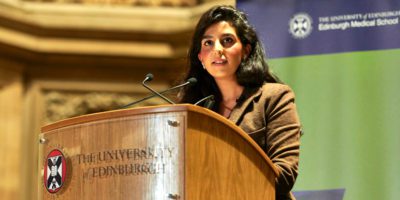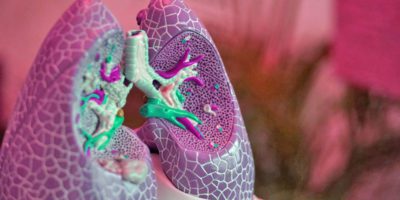Dr Nuthana Bhayankaram is a paediatric registrar and vice president of the Medical Women’s Federation. Nuthana is an academic paediatric trainee with a particular interest in endocrinology, having studied medicine at the University of Birmingham. She is also passionate about diversity and inclusion.
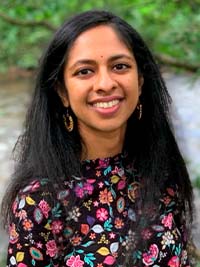
“I am very passionate about diversity and inclusion. I think it is really important that every voice has a chance to be heard. Part of what is so important in paediatrics is that we advocate for children who may not be able to advocate for themselves.”
Making a difference to children’s health
Since being a child I remember wanting to have a career that was ‘something to do with children’, because I thought working with children was fun and other jobs were boring, and this stuck with me as I grew up.
In school, I enjoyed science, so I decided to combine my interest in it and my passion for working with children and become a paediatrician. I applied to medical school with this aim.
I studied medicine at the University of Birmingham, and kept an open mind about what I might want to do long term, but paediatrics was always the preferred option. I am also really interested in research, so throughout my career so far, I have tried to keep it as an element.
I am currently on a training pathway to become a consultant paediatrician, on successful completion of my training. It is a long training programme (eight years), where I regularly work weekend and night shifts, and these can be quite exhausting, but I really enjoy making a difference in children’s health.
Doctors’ training explained
The whole medical system and language around doctors in training is rather confusing but I will try my best to explain it! When you graduate from medical school, all doctors in the UK do two years of foundation training, where we work in multiple specialities (e.g., surgery, medicine, general practice, obstetrics) on four-month rotations.
We then choose a speciality training programme, such as paediatrics in my case. After a few years of training and success in postgraduate exams, you become a registrar and take on more responsibility.
On a day-to-day basis, it means that I will lead ward rounds and review patients and make clinical decisions. I can always ask my consultants for advice, of course, but it means that I have more responsibility than more junior trainees. It also means that I get to take on a teaching and mentoring role for more junior trainees, which is also very fulfilling.
Impact of COVID-19
Just as I became a registrar, the pandemic hit, which was a really challenging time! During the first wave of the pandemic, I was working really long shifts on an ‘emergency rota’ to make sure that there were enough doctors in case we had lots of children become unwell with COVID-19.
Thankfully, throughout the pandemic, children have overall been less affected. From a junior doctor’s point of view, we have continued to see patients in person. A lot of our educational and research time was cancelled during the first wave of the pandemic, as we were needed on the ‘shop floor’, but has since recommenced online.
Going forward, there is talk of more virtual ways of working and using technology to help deliver patient care – which is something I am very interested in.
Our workforce is our most important asset
Our need to prioritise thinking about climate change and its effect on health has come to the forefront during the pandemic and led me to volunteer to join the Royal College of Paediatrics and Child Health Climate Change Working Group, working with colleagues around the country on how we can reduce the impact of climate change on child health, and designing ways in which we can find solutions to existing problems.
The pandemic has also highlighted that in all organisations, not just the NHS, the workforce is the most important asset and really needs to be looked after. Otherwise, no organisation will be able to sustain itself. This is something we really need to tackle in the NHS and the whole public sector – most healthcare professionals, teachers, university academics and emergency service personnel are overstretched, overworked and completely exhausted!
Additionally, women seem to have been disproportionately impacted by the pandemic – when there was already a gender and pension pay gap in many professions prior to the pandemic. We know that women still do the bulk of unpaid care, and the pandemic has made all the inequalities a lot worse!
History of the Medical Women’s Federation
Women were excluded from medical school and from being able to take licensing exams to practice medicine until 1876. So, we can see that although women were involved in caring for others as far back as the start of human societies, it seems that only recently we were allowed to become doctors.
The Medical Women’s Federation (MWF) was founded on 1st February 1917, with 190 members. The founding of the organisation was very closely linked with the women’s suffrage movement, which is why our logos are purple as this was one colour associated with women’s suffrage.
In 1917, the MWF wanted to focus on the topics of equal pay, nutrition, birth control, violent assaults on young people and menopause, and in 2021, we are still campaigning on these issues! Over the past 104 years, MWF has campaigned on medical issues and workforce issues.
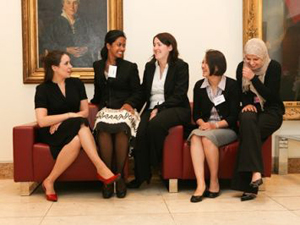
Becoming MWF vice president
I found MWF by accident via Google when I was a medical student, and I felt that as a medical woman, I should join. I attended my first conference and found the MWF committee and members to be such a wonderful, welcoming and supportive group that I really wanted to be part of. I was also really inspired when I learnt about the history of medical women and realised that they did so much to pave the way for us, and I want to do that for future medical women.
I got involved with representing MWF on external committees, then became a council member representing junior doctors and helping to engage more junior members with the organisation and ensuring that it remained relevant for them.
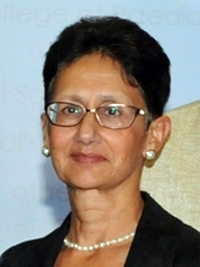
When the role of vice president came up, I initially didn’t even consider applying, thinking that I am far too junior to be applying for such a role. The women I had seen in this role were much more established in their careers than me and I was a bit hesitant. However, a conversation with the then-president Professor Neena Modi gave me the courage to apply. I hope that what I may lack in experience, I can compensate by my eagerness to learn and my enthusiasm to make a difference.
MWF’s upcoming Autumn Conference
This year’s Autumn Conference takes place virtually on Friday 5th November and we’ve got a wonderful line-up of speakers. I am also going to try doing some pre-conference interviews via social media. We definitely need your support to like us on social media and share our posts so we can reach even more people through them. Our social media channels are: Twitter: @medicalwomenuk, Facebook: @MedWomen, Instagram: @medicalwomenuk
You are also very welcome to attend the conference! Here are more details on how you can get involved: https://www.medicalwomensfederation.org.uk/news-events/conference
Our conference is on the topic of ‘widening the umbrella of medicine’, and we have talks on refugee doctors, the experience of disability as a medical student, how women have been treated by medicine throughout history, wellbeing, and advocating for women and children.
We also have some abstracts on very interesting projects conducted by our members or medics new to MWF.
Of course, virtual events are not quite the same as face-to-face, but I am really excited to welcome new members to MWF, welcome back existing members, and share a day of learning together.
We must tackle unconscious bias!
I am passionate about diversity and inclusion in everything! I think it is really important that every voice has a chance to be heard. Part of what is so important in paediatrics is that we advocate for children who may not be able to advocate for themselves.
I have experienced sexism, racism and even height-ism and especially since becoming a registrar, I have noticed a lot of unconscious bias. I have led ward rounds where parents assumed that my male or white colleagues were in charge. The only way we can change the system is by being aware of our own biases, educating and working with allies to challenge and change perceptions.
I want to use my role as vice president to help MWF’s work on tackling these difficult issues. I am going to be representing MWF at an upcoming roundtable discussion on sexism in medicine. I am also ensuring that we respond to consultations to ensure that women are not excluded in medical research or in workforce planning.
Many projects in the pipeline – even a podcast
I am very excited about a whole host of things coming up next for MWF! Our archive at the Wellcome Trust has been digitised so we are planning an event to celebrate these and the history of MWF.
Professor Chloe Orkin, our wonderful new president, had the great idea that we could do some research projects relating to women in medicine. We are also building links with other organisations to help champion and support women doctors and women in society.
I am also in the process of setting up a podcast for MWF – if any of your Womanthology community have suggestions of topics they would like us to cover in the podcasts, I would love to hear from them! I think it will be great to have a podcast to hear from our incredible community of inspiring medical women.
https://www.medicalwomensfederation.org.uk/
https://twitter.com/medicalwomenuk

